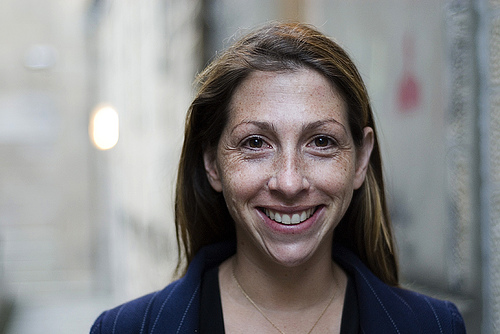 The Foundation for Jewish Culture granted $80,000 in finishing funds to 5 documentary films under their Lynn and Jules Kroll Fund for Jewish Documentary Film. The grants range from $10,000 to $20,000 and are meant to help aid filmmakers in the post-production process and to gain a wider audience. This year, 3 of the 5 films awarded are directed by women. Since 1996, 50% of their annual recipients have been women.
The Foundation for Jewish Culture granted $80,000 in finishing funds to 5 documentary films under their Lynn and Jules Kroll Fund for Jewish Documentary Film. The grants range from $10,000 to $20,000 and are meant to help aid filmmakers in the post-production process and to gain a wider audience. This year, 3 of the 5 films awarded are directed by women. Since 1996, 50% of their annual recipients have been women.
Here are the women and their films who received the Kroll Film Fund.
Dancing in Jaffa – Directed by Hilla Medalia
Pierre Dulaine, an internationally renowned ballroom dancer, fulfills a life-long dream when he takes his program, DANCING CLASSROOMS, back to his city of birth, Jaffa. Over ten weeks, Pierre teaches 10-year-old Palestinian-Israeli and Jewish-Israeli children to dance together and compete together. The film explores the stories of four children, forced to confront issues of identity and racial prejudice, as they dance with their enemy. Dancing in Jaffa offers an up-close-and-personal perspective of how the future might unfold if the art of movement and dance could triumph over the politics of history and geography.
The Rosenwald Schools – Directed by Aviva Kempner
The Rosenwald Schools is a documentary on the incredible story of how Jewish businessman and philanthropist Julius Rosenwald joined with Booker T. Washington and African American communities in the South to build over 5,000 schools when few African Americans received any public education. In addition, Rosenwald established a fund that awarded grants to primarily African American gifted artists and intellectuals. Fellowships totaling $1.65 million were given out to recipients including Marian Anderson, Ralph Bunche, W. E. B. DuBois, Ralph Ellison, Dr. Charles Drew, John Hope Franklin, Zora Neale Hurston, Gordon Parks, James Baldwin, Jacob Lawrence and Woody Guthrie.
The Jewish Partisans – Directed by Julia Mintz
The Jewish Partisans will candidly tell the story of those who fought the Nazis and their collaborators from the forests of Eastern Europe and Belorussia. Men and women, some barely teens became soldiers living and fighting from bases deep in the primeval woods. There they organized scarce resources: food, supplies and munitions and took up arms, both defensively and offensively, in Jewish militias, and along -side brigades of Soviet Partisans and the Russian armies. Jewish resistance fighters faced wrenching moral questions, while carrying out deadly acts of sabotage and participating in strategic ambushes.






